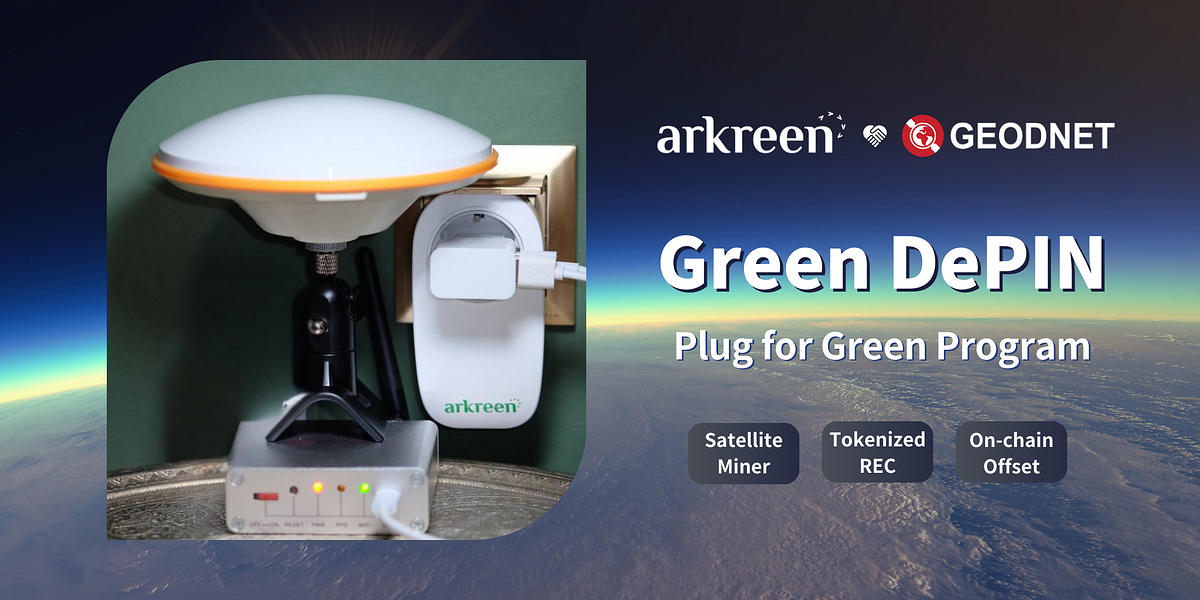Arkreen and GEODNET Partner for Sustainable Green DePIN Initiative

Arkreen, a Web3-powered infrastructure company focused on renewable energy and carbon reduction, has announced a strategic partnership with GEODNET, a leader in Earth observation and operator of the largest Real-Time Kinematics (RTK) network globally. This collaboration falls under the “Plug for Green Program” (PGP) and aims to enhance carbon neutrality within Decentralized Physical Infrastructure Networks (DePIN). Together, they are paving the way for a sustainable future by leveraging innovative technologies to address energy consumption and carbon emissions in the mining sector.
The partnership introduces a novel approach to monitor energy consumption and offset carbon emissions through the integration of GEODNET’s satellite miners and Arkreen’s Smart Plugs. By utilizing Arkreen’s tokenized Renewable Energy Certificates (RECs), users can now directly offset their carbon emissions from brown energy consumption on-chain. This initiative not only promotes a greener mining process but also unlocks new opportunities for participants to engage in environmentally responsible practices while benefiting from dual-mining rewards.
As a key player in global Earth observation, GEODNET enhances the capabilities of autonomous systems with its advanced RTK network, which offers significant improvements in positional accuracy. Through the Plug for Green Program, Arkreen equips GEODNET with real-time energy monitoring and innovative green incentives, encouraging the community to adopt carbon-neutral practices. This partnership exemplifies the potential of Green DePIN initiatives, empowering participants to contribute to global sustainability efforts while reaping the rewards of eco-friendly mining.
Related News





